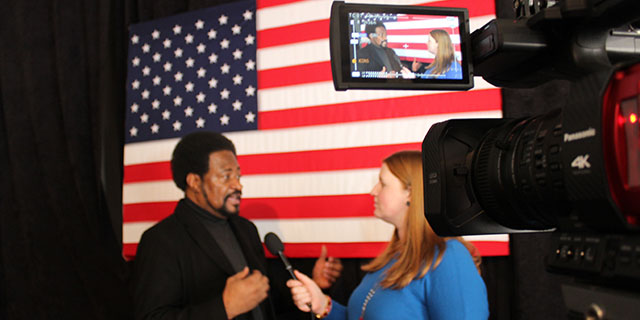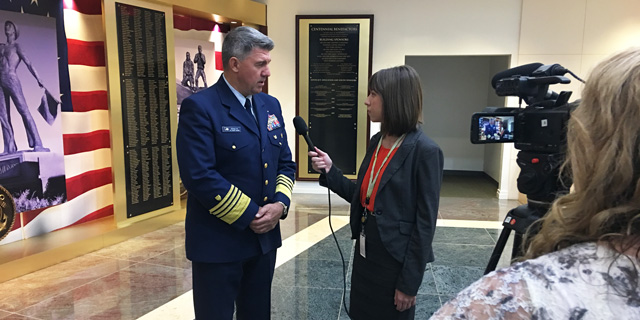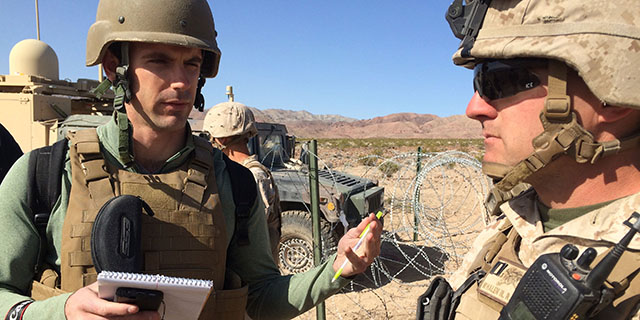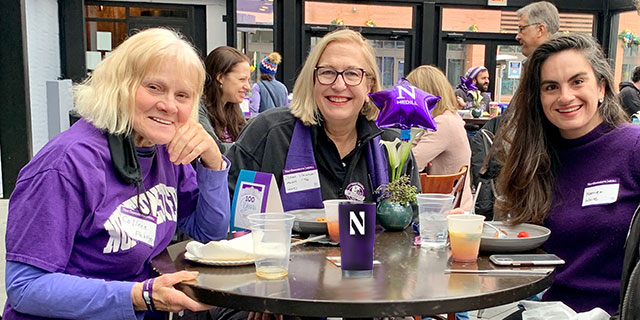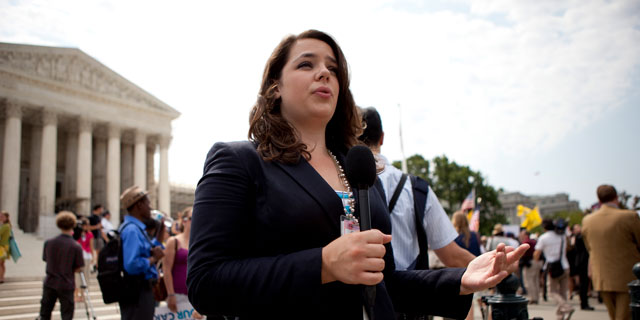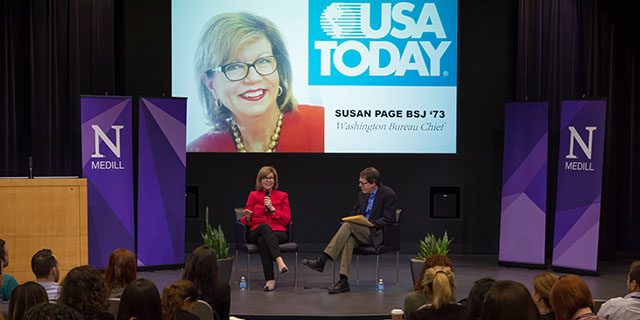
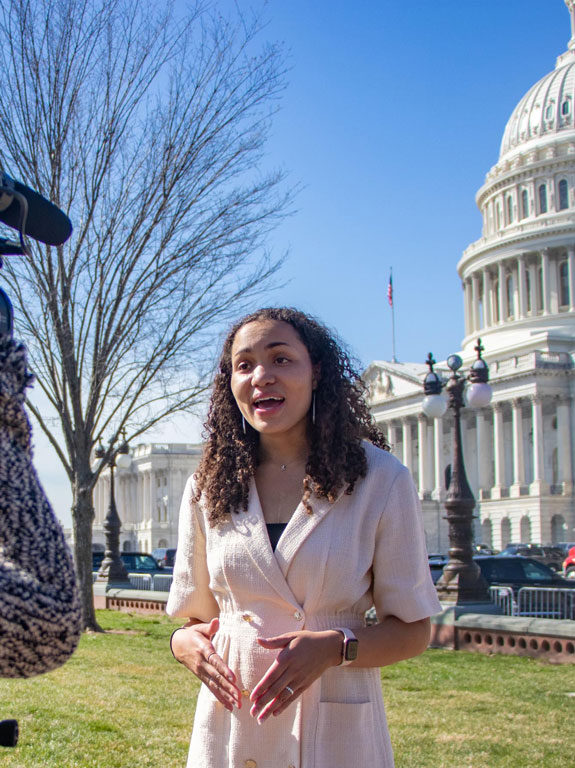
Politics Policy and Foreign Affairs
In the current politically charged environment, almost all news can be considered political news. Students in Medill’s Politics, Policy and Foreign Affairs specialization relentlessly cover these hot topics from Chicago, Washington and across the globe.
About the specialization
From interviewing ward bosses in Chicago to attending congressional hearings and White House briefings as a credentialed reporter to gathering stories in a foreign country, you’ll have unique opportunities to cover history as it unfolds.
Why Politics, Policy and Foreign Affairs?
These topics provide plenty of news to cover, even when it’s not campaign season—although you will get the chance to cover elections if the timing works out during your program. For journalists, the stakes are high: An informed electorate is crucial to democracy and journalists are needed to help consumers understand the real issues of the day.
At Medill, you’ll build a solid foundation in reporting that will allow you to cover complex issues such as the deficit, immigration, national security and foreign policy. In fact, almost every issue, from trade to education to housing, has a policy component. You’ll hear from experts in the political, administrative and legislative processes.
For many alumni, the experience has translated into positions at top-tier global news outlets, political organizations, think tanks, nonprofits, congressional offices and the federal government.
What will I learn?
You’ll report for Medill News Service in Chicago and Washington, covering news for print, broadcast and digital native publications. You will spend fall and winter quarters in Chicago and then spend spring and summer quarters at Medill’s Washington newsroom, which has trained top journalists for more than 50 years. In Washington, you’ll have the opportunity to report as a credentialed journalist from Capitol Hill, the Pentagon, the White House and even the Supreme Court.
You'll complete an annual reporting trip to a site related to your specialty. Previous locations have included campaign headquarters and military bases. You will participate in a three-month reporting project that will be published or aired in a major news outlet, thanks to Medill’s relationships and connections with the industry.
You’ll be able to compile your published clips and multimedia productions into an impressive portfolio that will showcase your professional, hands-on journalism experience as a journalist for Medill News Service and its clients. This portfolio will be an asset to show your experience when you are interviewing for jobs.
Watch an overview of the PPFA specialization below:
Our Faculty

Elizabeth Shogren
Elizabeth Shogren was a senior reporter and producer for Reveal from The Center for Investigative Reporting. Her primary focus was climate change. Previously, Shogren was an on-air environment correspondent for NPR’s national and science desks.
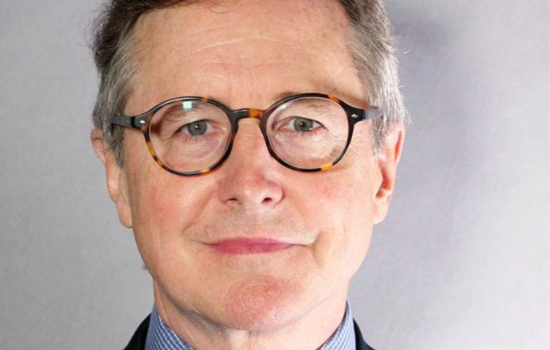
Bob Rowley
Bob Rowley is a contributing writer for the Washington Monthly and writes occasional op-eds for the Chicago Tribune.

Jon Marshall
Marshall has written for numerous newspapers and magazines and is author of "Watergate's Legacy and the Press: The Investigative Impulse."
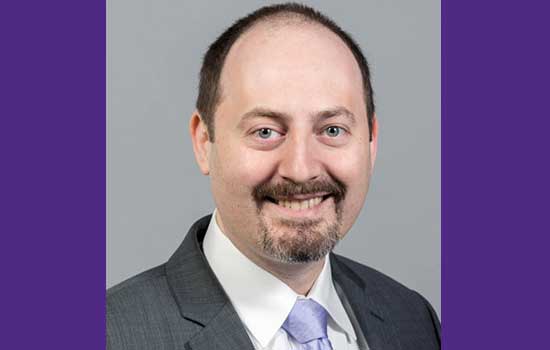
Ivan Meyers
In addition to video journalism classes at Medill, Meyers has also taught video courses geared for journalists at other institutions, including the National Press Club, the American Red Cross and Georgetown University.

Matthew Orr
Orr has reported internationally in China, Japan, Myanmar, Ukraine, Democratic Republic of Congo and the Dominican Republic. He also covered the U.S. presidential elections in 2004, 2008 and 2012.
Our Alumni
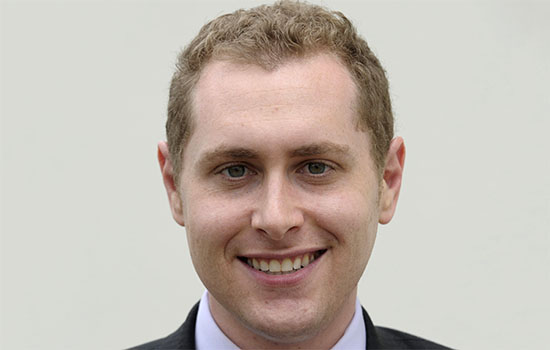
Josh Lederman (MSJ11)
Correspondent
Lederman covers foreign policy, the White House and the State Department for the AP and has reported from more than 20 countries, including Iraq, Israel, Russia and Cuba.

Kevin Schmidt (MSJ18)
News Writer and Producer
Schmidt works with CBS affiliates across the country to gather and share content of interest on the national and international levels.

Tanvi Misra (MSJ14)
Independent Journalist (Freelance)
Misra writes about migration, criminal justice, economic equality, urban policy and tech equity.
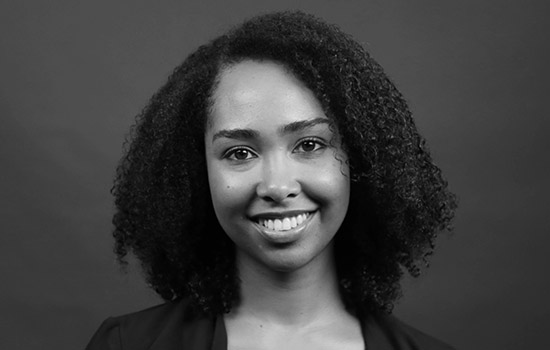
Gillian B. White (MSJ12)
Senior Vice President of Revenue & Programming
White has served as the senior vice president of revenue and programming at Capital B since 2021. Previously, she worked at The Atlantic for seven years, rising to managing editor.

David Eggert (BSJ00, MSJ04)
Statehouse Correspondent
David Eggert has covered Michigan government and politics as a reporter for nearly 11 years, writing about the legislature, governor and state and national elections, among other topics.


